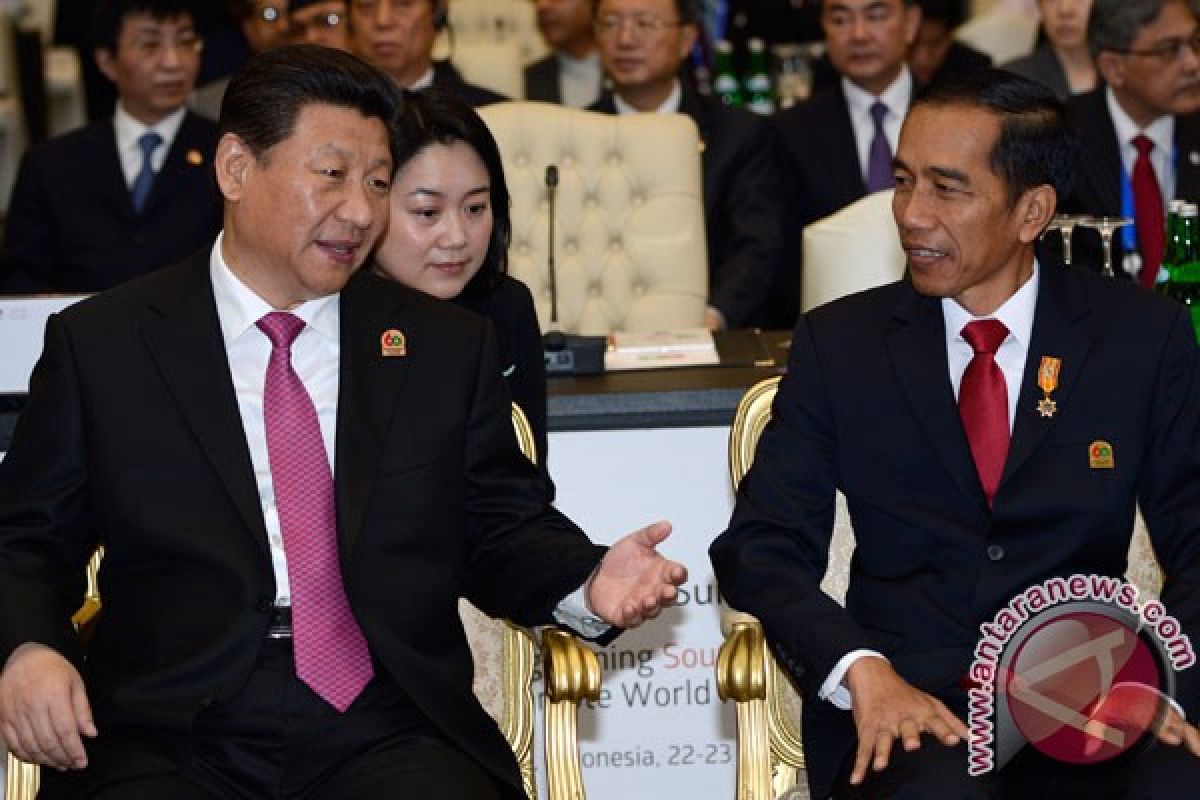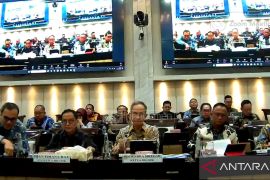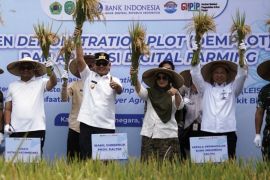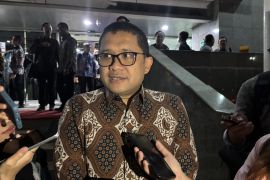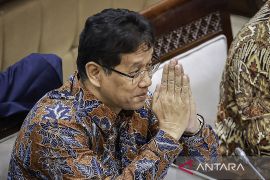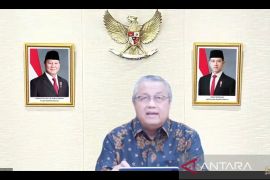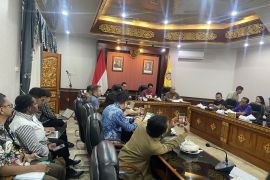China commits to increase investment in the real sector and possibly in portfolios."Jakarta (ANTARA News) - Liquidity assistance worth US$20 billion provided by China, through a bilateral currency swap scheme, will strengthen Indonesias liquidity amid the current global economic turmoil, according to Bank Indonesia (BI), the Indonesian central bank.
"This is part of the second line of defense. If there is pressure, it would provide liquidity support," BI Governor Agus Martowardojo stated on Friday.
Therefore, the BI governor hailed the bilateral currency swap arrangement, which increased from the previous scheme valued at US$15 billion.
He said the liquidity support assistance indicated increasing investor confidence in Indonesias economy, which has been increasingly improved in line with the development of the domestic economy.
"The confidence is reflected in the decrease in the rupiahs depreciation from 19 percent year-to-date (ytd) last August to 10 percent ytd now. This displays the increase in confidence," noted Agus.
Recently, the governments of Indonesia and China held a bilateral meeting on the sidelines of the G20 Summit in Antalya, Turkey, last week (Nov. 15).
Indonesia and China agreed to increase cooperation in the fields of economy and finance, including Chinese assistance, to support liquidity in Indonesia.
"Several matters have been discussed, such as follow-ups on our previous meetings, and Chinas liquidity support, including an additional US$20 billion," President Joko Widodo (Jokowi) stated following a meeting with Chinese President Xi Jin Ping on the sidelines of the G20 Summit.
According to Finance Minister Bambang Brodjonegoro, China has increased its liquidity support for Indonesia through the scheme.
"Indonesia welcomes the additional currency liquidity support from US$15 billion to US$20 billion," emphasized Minister Brodjonegoro.
The minister affirmed that the Chinese aid can be used to strengthen Indonesias foreign exchange reserves whenever the need arises.
The finance minister said the G20 meeting discussed issues such as the global economic slowdown, and the IMFs forecast of the global economic growth of 3.1 percent in 2015 lower than the 3.2 percent growth recorded in 2014 but is predicted to increase to 3.6 percent in 2016.
According to the minister, the meeting is being held to discuss efforts to tackle the economic slowdown. The indication of an economic slowdown is an anomaly indicating that the global trade growth was lower than the GDP growth.
In order to cope with the slowdown, the domestic economy needs to be revived as has been done by China and Indonesia, and trade protection has to be removed, he remarked.
Bambang stated that President Jokowi spoke about Indonesia launching large-scale infrastructure development in a bid to cope with the economic slowdown.
In addition to the liquidity support, China also pledged to invest in infrastructure and the manufacturing industries in Indonesia.
"One is in the aluminum industry. This is for development of the downstream bauxite industry," he said.
China also pledged support in financing infrastructure projects in Indonesia through the Asia Investment and Infrastructure Bank (AIIB) for the management and expansion of projects. The Chinese investment means that China will provide additional capital to Indonesia, he added.
Bambang asserted that China is ready to increase investment in infrastructure and manufacturing to support economic growth in Indonesia.
"China commits to increase investment in the real sector and possibly in portfolios. They have also expressed support to boost Indonesias economic growth," he said in an audio teleconference from Turkey.
Indonesia also committed to boosting economic growth in 2016, the minister said. The keys are stimulus packages to boost investment and improve the purchasing power of the people, he added.
On infrastructure development, the Indonesian Chamber of Commerce and Industry (Kadin) is cooperating with the Development Committee of China in the construction of international standard seaports in Indonesias eastern regions.
"The Kadin is cooperating with the Development Committee of China in the development of international standard ports in Indonesia," Kadin deputy chairman for Maritime Affairs and Fisheries Yogi Prayanto said on Tuesday (Nov.17).
Yogi made the statement during the signing of memorandums of understanding between Kadin and Chinas Development Committee, as well as between Indonesia Sorong Port and China North Bay Shatin Port in Jakarta.
He said the cooperation was established as part of the efforts to seize opportunities in the construction of ports and piers, in accordance with the world maritime axis and sea toll concepts of President Joko Widodo.
Yogi also said the cooperation was inspired when he visited the port of Guangzhou, where he witnessed that the loading and unloading activities by one ship only took 3 to 5 hours, making the process very effective and efficient.
He is of the view that the key to this was technology, so that the benefit of the efficiency is considered in deciding on an investment program which, in the initial step, was only worth US$2 billion for a five year period.
After all, Yogi said, Kadin was convinced that the funds from the state budget would not be adequate to build the infrastructure, so it thought that the private sector should take the initiative in the development of ports and shipyards.
"We started the signing of MoUs to pioneer the port business in Sorong (West Papua), Bitung (North Sulawesi) and other regions," he said.
(T.A014/INE/KR-BSR/F001)
Reporter: Andi Abdussalam
Editor: Priyambodo RH
Copyright © ANTARA 2015
